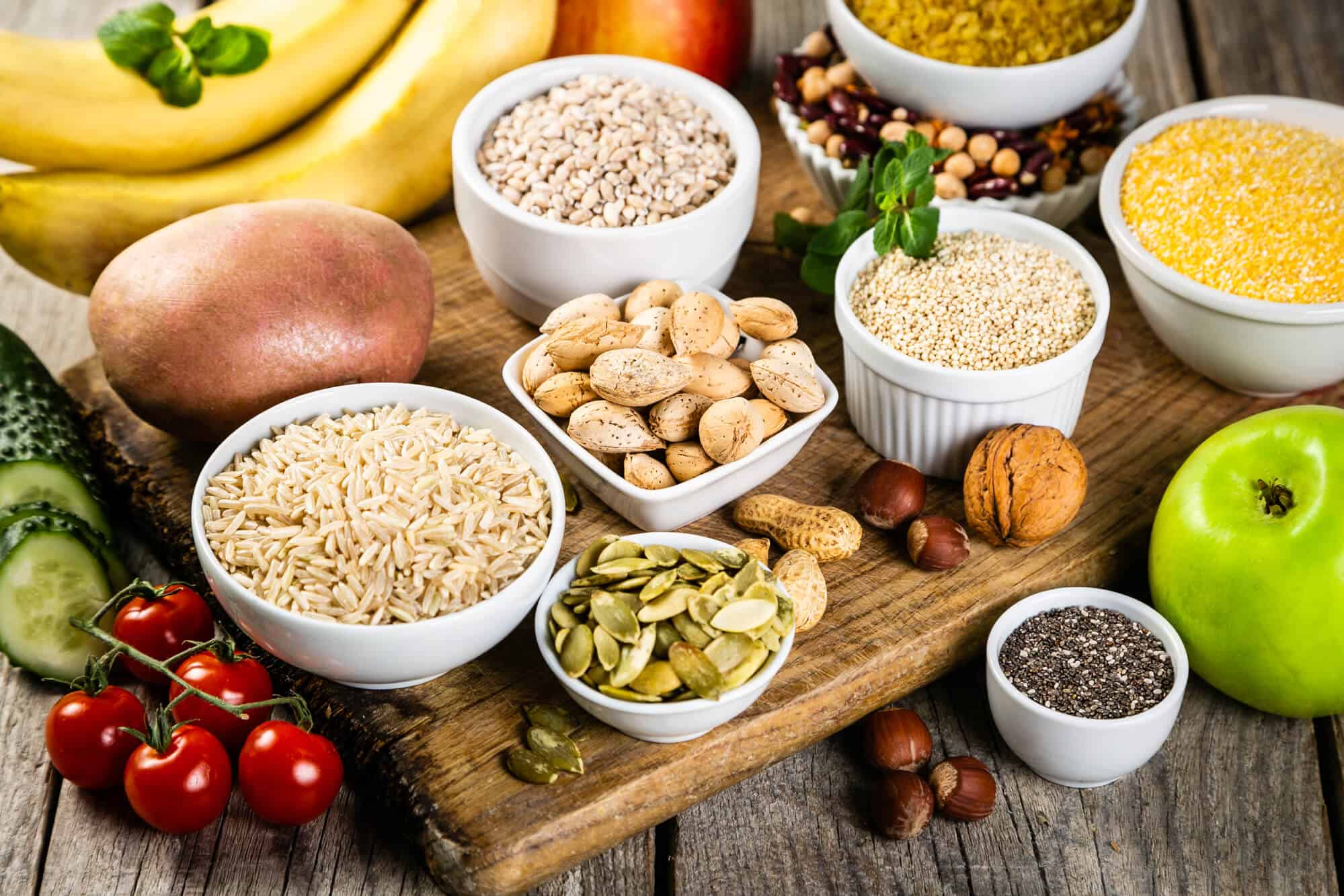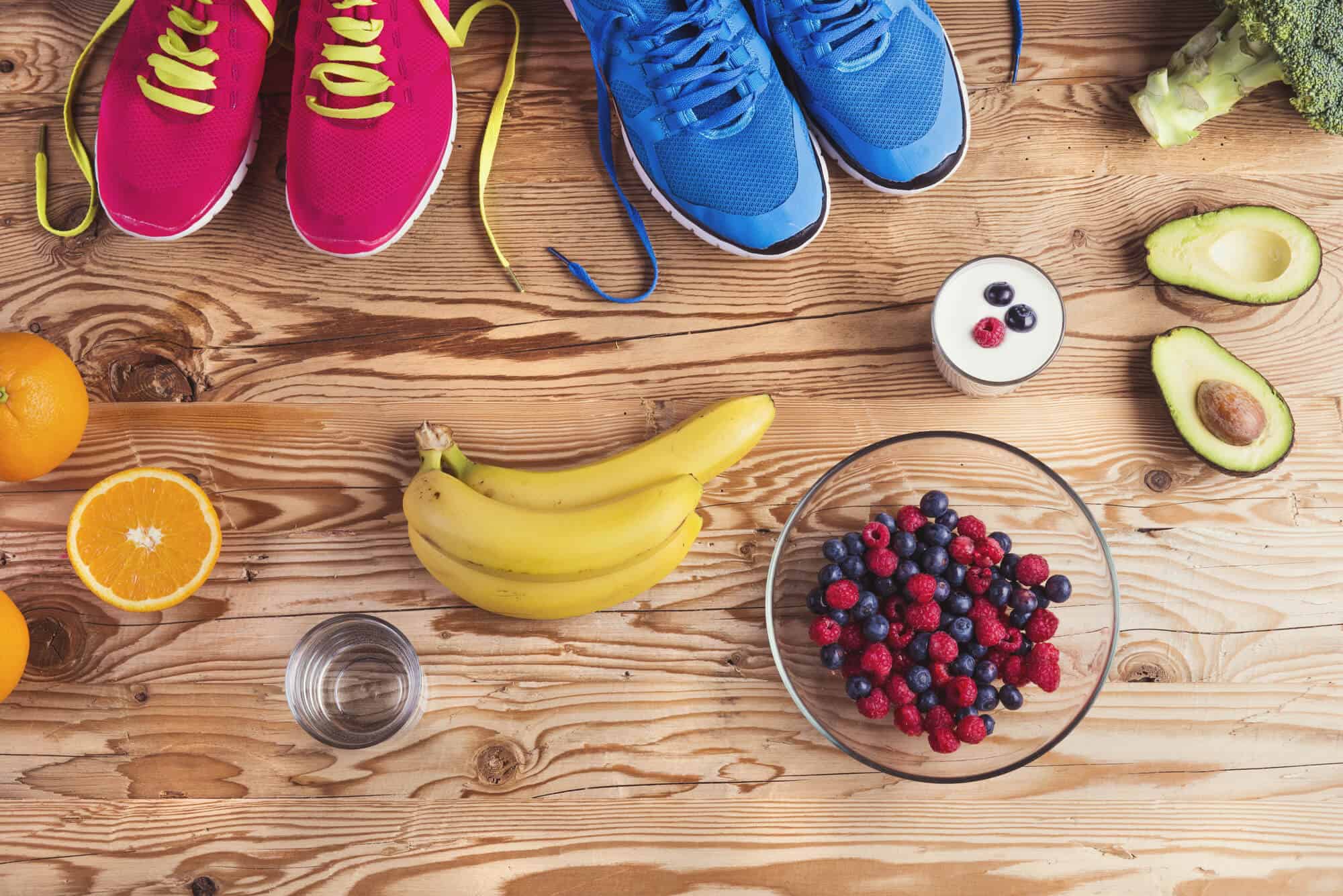What to Eat the Night Before a Half Marathon?
Half marathons are remarkably longer and more intense than a 5K or a 10K. For that reason, they require a lot of training for anywhere between 3 to 4 months!
During that time, you have to train hard and also follow a proper nutritional plan throughout the training period.
However, when it comes to the night before a half marathon, there are plenty of things to consider, such as the kind of food to eat, how to supplement and prepare your body for tomorrow’s race, and more.
If you want to know what to eat the night before a half marathon, this brief guide will cover all the essential points, including what to eat and avoid on that day, before, and even after the race!
When Should You Start Planning Your Meals Before a Half Marathon?
One of the most common tips that experienced runners recommend to beginners is to follow a proper diet while preparing for a race.
However, when it comes to marathons and half marathons, training may start as early as 3 to 4 months before the race.
Of course, following a proper diet during that time would be a great idea if you’re serious about competing in the race and making the most out of it.
However, for an average runner who is trying to finish the race, sticking to such a diet so early can actually cause commitment problems towards the finals weeks leading up to the race (when it really matters).
For that reason, the average runner can start following a proper diet as late as 5 to 6 days before the race.
However, you may notice a significant difference if you start following a proper diet around 2 weeks before the half marathon, so you can start earlier if the commitment to a specific dietary plan isn’t a problem for you.
What to Eat the Night Before a Half Marathon
During training for a marathon or a half marathon, you need to generally increase your intake of carbohydrates in order to encourage your body to store more glycogen. The best type of carbs to consume while training is carb dense, low fiber foods, such as:
- White rice
- White toast
- Pasta
- Bagels
- Potatoes
- Sweet potatoes
- Any form of processed grains
All in all, carbs should make up 60% to 70% of a runner’s diet. Although these percentages aren’t healthy for a normal adult, they’re ideal for a runner who’s training for a half marathon, so you don’t have to worry.
The other 30% to 40% should be made up of easily digestible protein that is rich in essential amino acids, such as lean meat, fish, poultry, tofu, beans, and eggs.
Fats are also essential, but you should pick only high quality fats by going for unsaturated fatty acids like omega 3 and 6, which are essential for muscle growth and recovery after exercise.
Nuts, fish, and seafood, in general, are rich in these fatty acids.
The Importance of Carb Loading

During the weeks before the half marathon, you’ll need to consume balanced meals that contain all the necessary micro and macronutrients. As for the last 4 to 5 days before the half marathon, you’ll start “carb loading”.
This is where you start ramping up your carbohydrate intake even higher in order to store as much glycogen in your body as possible before the race, which is essential to endure the energy demands of the half marathon.
Keep in mind in mind that carb loading shouldn’t be done earlier than 4 to 5 days before the race because you’ll be consuming too many calories when compared to what you burn. This puts you into a state of caloric surplus, and you end up losing weight.
Should You Aim for Losing Weight Before a Half Marathon?
Losing weight requires a state of caloric deficit, which doesn’t match the goals of a half marathon training, so it’s not recommended to target weight loss before a half marathon.
Half marathons are 13.1 miles long, so they require a lot of endurance in order to reach the finish line.
To build endurance, you need to load up on carbs before the race and strengthen your lower leg muscles. Both of these targets won’t achieve the best results in the case of severe caloric deficit.
However, if you’re trying to lose weight or you don’t want to gain too much weight, you can consume an equal number of calories to what you burn. In order to do this, you’ll need to keep all the following aspects in mind:
- Your basal metabolic rate (BMR), which can be calculated online using this simple tool.
- Your caloric intake for the day, which you can find out by logging what you eat. A good calorie counter app is the easiest way to do that, such as MyFitnessPal.
- The number of calories burned during exercise during the day, which can be figured out by using a smart band while working out.
To avoid losing or gaining weight, you need to make sure that your BMR and calories burned throughout the day are equal to the calorie intake for the day.
Never Try Anything New Before a Half Marathon
If there’s one thing you’ll need to do before a race, whether it’s a 5K, 10K, half marathon, or even a marathon, it should be this.
This is basically one of the oldest rules that all runners must follow in order to avoid unexpected surprises.
This is because each person reacts differently to various types of food, and while some runners may not suffer any problems eating specific foods or ingredients, other runners might feel discomfort and gut problems.
If you want to stay comfortable and avoid any surprises in the race, make sure that you stick to the food and drink items that you’ve already tried out several times and made sure that they won’t hurt you, especially if you have a sensitive stomach.
Simply put, while preparing for the marathon, never try to incorporate anything new that you haven’t tried before. By “anything new” here, we mean literally anything, whether it’s different gear, running style, posture, etc.
You should also avoid all kinds of new supplements and products that promise magical and exceptional performance on the race. If you’re so tempted to try a new item, the last chance to give it a try should be 2 to 3 days before the half marathon day.

What Kind of Food Should I Avoid to Prevent Diarrhea Before Half Marathons?
If you’re training for a half marathon, there is some food that you might want to avoid throughout the last two weeks before the race, including the night before the half marathon.
This includes dairy products of all kinds. Although some might exclude yogurt, you might want to avoid it as well. This is because dairy products are rich in lactose, which is indigestible in our intestines and requires gut flora to break it down.
Even if you’re not lactose intolerant, dairy products still end up causing some minor gut disturbances that aren’t noticed on regular days.
However, if you do intense exercise, you increase the risk of runner’s diarrhea, which has more pronounced effects when you consume dairy products like milk and cheese.
You should also avoid eating whole grain foods, such as brown sugar and rice. This is because these foods are rich in fibers, and excessive fiber intake also increases the risk of runner’s diarrhea.
It’s also recommended that you avoid any foods that your stomach reacts negatively to, even if it’s minor discomfort or some flatulence. All these foods will end up slowing you down and require unexpected bathroom stops.
The same is also said about deep fried and junk food which is full of saturated fats. These fats cause unnecessary stomach cramps while running.
How Much Water Should I Drink Before a Half Marathon?
Besides food, you should also make sure that you drink enough fluids during training as well as on the half marathon day, as being dehydrated while running will negatively affect your focus and performance.
While training your body will lose water in the form of sweat and water vapor released during exhalation.
This water also includes essential electrolytes, such as sodium, potassium, etc, which are essential for your performance.
Loss of electrolytes reduces the cardiac output, which limits the amount of oxygen reaching muscle tissues, and therefore, reduces your overall performance and increases the risk of injuries and fatigue.
With that said, too much water can cause too many toilet stops, which can be a problem if you’re racing competitively.
To avoid that, you should drink around 80% to 90% of the amount of water you lose during a race.
A runner will lose around 16 to 50 fluid ounces of water every hour depending on running intensity and climate conditions. Ideally, you need to drink around 85% to 90% of the fluid lost to avoid dehydration. This water can be regular water or electrolyte drinks.
Can I Drink Coffee on Half Marathon Morning?

As previously established, trying anything new on the marathon day and the night before is never a good idea.
If you already drink coffee every day and you don’t suffer any adverse reactions, you should definitely keep that up on race day as well.
In fact, the caffeine content in the body will help in boosting both your focus and energy levels, which can help in improving your performance in the race where every second counts!
Coffee also contains natural chemicals called “tannins”. These tannins have an anti-diarrheal effect that is excellent for those who suffer from runner’s diarrhea.
What to Eat and Drink After a Half Marathon?
After finishing the half marathon, you should never stick to the same dietary plan followed in the last few weeks.
Marathon preparations, in general, involve eating massive quantities of carbohydrates while keeping the protein and fat intake pretty low
While your body is capable of sustaining these conditions for some time, it can’t sustain its health for a long time with the same diet.
As soon as you finish the race, the first thing that you need to eat is a balanced meal that has a higher percentage of essential macronutrients, which are proteins and fats. This can be from lean meat as well as nuts and avocado respectively.
Ideally, such a meal should be consumed within 60 minutes after finishing your race. You also need to drink a lot of water to replenish your body’s moisture and electrolyte content. Many runners will drink a 20 fl oz (500 ml) bottle right after the race.
Wrap Up
With that said, you now have a better understanding of what to eat the night before a half marathon.
As you can see, while training for a half marathon, you need to take care of what you eat throughout the training period, especially during the last few weeks leading to the event.
Make sure that you always stick to food and drinks that you know and avoid trying anything new on the race day or the night before to prevent any unexpected gut problems that can affect your performance during the race.
Additionally, remember to go to the bathroom before heading to the race in order to run without any problems, especially if you suffer from runner’s diarrhea.

